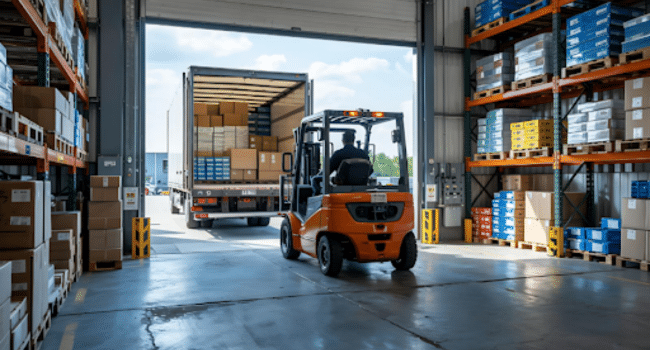Table of Contents
Manufacturers, construction firms, cleaning services, and retailers rely on heavy-duty tools and equipment. From belt conveyors and ground hog trenchers to carpet dryers and generators, this machinery forms the backbone of daily operations.
If you’re in one of these fields, there comes a time when you need to replace worn-out equipment or add new ones to keep up with growing demands. That’s when the choice of a machinery supplier becomes critical. You can’t just meet and deal with any company offering your desired products. You must ask them the right questions to know whether they can meet or surpass your expectations. Here they are:
1. Is the Supplier’s Track Record Reliable?
A supplier’s history offers valuable insight into their reliability. Look into how long they have been in business, the types of industries they serve, and any major clients they have supplied. Longevity can indicate stability, while a diverse client base suggests the ability to handle different requirements.
Past performance also reflects on the quality of their machinery. Reviews, testimonials, and case studies help gauge satisfaction levels among previous customers. Consistent positive feedback usually points to a supplier that values performance and service.
When you choose Crommelins Machinery machinery supplier or any trusted company in your area, you can be confident that you’ll receive reliable products and services. The proven track record is a strong indicator of consistent performance
2. Do the Machines Meet Industry Standards?
It’s essential to clarify the technical specifications of machinery before purchasing. This is especially important in industries like pharmaceutical manufacturing or food processing, where compliance with safety and quality standards is critical.
Check whether the supplier provides detailed product documentation, including manuals, certifications, and compliance reports. Access to these documents allows for informed decisions and ensures that the machinery adheres to legal and industry regulations. More importantly, it reduces the risk of purchasing equipment that does not meet operational requirements.
3. How Transparent Are the Pricing and Terms?
Understanding the cost structure is crucial before committing to a supplier. Clear information about base prices, optional features, and additional charges such as shipping or installation helps prevent unexpected expenses. Hidden fees can disrupt budgets and create complications later in the process.
Payment terms are equally important. Clarify deposit requirements, installment options, and any penalties for late payment. A good supplier who communicates these details upfront shows professionalism and builds trust. Being clear on pricing and policy ensures that both parties have realistic expectations and reduces the likelihood of financial surprises.
4. What Level of Support and Service Is Offered?
A strong supplier relationship extends beyond the purchase. Determine whether the supplier provides installation assistance, maintenance services, and troubleshooting support. Quick access to technical help minimizes downtime and keeps your operations running smoothly.
Warranty coverage is another key factor. Check the duration, conditions, and whether replacement parts are included. A comprehensive warranty reflects the supplier’s confidence in their equipment and provides peace of mind in case issues arise. Excellent support and service ensure that any problems can be addressed promptly, protecting both productivity and investment.
5. Are the Delivery and Logistics Arrangements Efficient?
Timely delivery is essential to keep projects on track. Discuss lead times, shipping methods, and expected arrival dates with the supplier to ensure that equipment reaches you when needed. Delays can disrupt schedules and create costly downtime, so understanding the supplier’s delivery process is crucial.

Logistics also includes installation and handling. Confirm whether the supplier provides on-site support or coordinates with third-party logistics services. Clear arrangements reduce the risk of miscommunication and ensure a smooth transition from delivery to operational readiness.
6. How Strong Is the Supplier’s Reputation in the Industry?
A supplier’s reputation often reflects reliability, integrity, and service quality. Look for industry recognition, certifications, or awards that indicate their standing among peers. Engaging with trade associations, forums, or other businesses in your sector can provide unbiased insights into their performance.
It’s equally important to observe how the supplier handles complaints or issues. A company that addresses problems professionally and promptly demonstrates a commitment to customer satisfaction. Choosing a reputable supplier reduces risk and increases confidence that the equipment and support you receive will meet expectations.
7. Is the Availability of Spare Parts Adequate?
Machinery often requires replacement parts to maintain performance and prevent downtime. Confirm the supplier’s inventory and lead times for critical components. Easy access to spare parts ensures that repairs can be completed quickly, minimizing operational interruptions.
It’s also important to know whether the supplier provides original parts or compatible alternatives. Original parts typically guarantee optimal performance, while compatible parts may offer cost savings but carry a risk of reduced reliability. Understanding spare part availability helps maintain productivity and protects your investment over time.
8. Do They Provide Training for Modern Equipment?
Proper training ensures that machinery is used safely and efficiently. Confirm whether the supplier offers training programs for operators and maintenance staff, including manuals, workshops, or on-site demonstrations. Well-trained personnel can prevent misuse, reduce accidents, and extend the lifespan of equipment.
Don’t forget to evaluate the depth of training provided. Effective programs cover troubleshooting, preventive maintenance, and operational best practices. A supplier that invests in comprehensive training helps your team work more confidently and keeps equipment running smoothly over the long term.
9. What Are the Environmental and Safety Considerations?
Ensuring machinery complies with safety regulations and environmental standards is essential. Ask the supplier about certifications, built-in safety features, and eco-friendly measures incorporated into the equipment. This helps protect employees, the workplace, and the surrounding environment.
Suppliers who provide guidance on safe operation, energy efficiency, and waste management demonstrate responsibility and foresight. Choosing equipment that prioritizes safety and sustainability not only reduces risk but also supports long-term operational efficiency.
Key Takeaway
Choosing the right machinery supplier is a critical decision. It affects productivity, costs, and long-term efficiency. Don’t rush the selection process—asking the right questions first can make all the difference. A careful choice ensures high-quality machinery, responsive service, and ongoing support. This approach helps protect your investment, reduce downtime, and keep operations running smoothly.
